Recently some camp counselors shared what they’ve learned on the job and I’d like to highlight two important concepts they talked about. Think of this as your basic introduction to camp counselor skills and also how important professional development is to your overall future:

1. Time management
High school students often focus on preparing for college by earning acceptable grades and participating in additional activities. While these strategies are essential to the process, students too often rely on parents/care givers for structure and reminders and fail to understand that managing time is one of the most important skill required for college success. Across the United States, students with ability and good intentions often struggle in college, just because they have not learned to schedule assignments, work, reading and most importantly the time they spend having fun or relaxing.
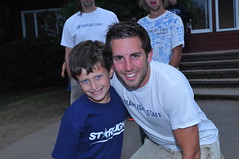 In contrast, one past camp counselor explains, “time management is crucial at camp,” and even if you are familiar with regimented schedules, “a camp counselor is responsible for keeping others in line with the daily schedule.” So the job requires not only learning to manage time personally, but also for large groups and that becomes a skill counselors develop. Camp counselors also “learn to be disciplinarians in strategic ways.” These skills are essential and applicable to keeping an undergraduate student motivated to complete assignments and participate in college activities. So, since professional experience at camp requires “all counselors to be responsible,” and to “learn to be accountable for personal actions as well as those of others,” camp counselors benefit in multiple ways.
In contrast, one past camp counselor explains, “time management is crucial at camp,” and even if you are familiar with regimented schedules, “a camp counselor is responsible for keeping others in line with the daily schedule.” So the job requires not only learning to manage time personally, but also for large groups and that becomes a skill counselors develop. Camp counselors also “learn to be disciplinarians in strategic ways.” These skills are essential and applicable to keeping an undergraduate student motivated to complete assignments and participate in college activities. So, since professional experience at camp requires “all counselors to be responsible,” and to “learn to be accountable for personal actions as well as those of others,” camp counselors benefit in multiple ways.
Working as a camp counselor is also the perfect component to rounding out a year of personal and professional growth by managing the time between semesters! As students mature and move into the realm of adulthood, they often have to face the reality that they are not completely self sufficient.
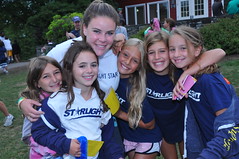 2. Independence and freedom
2. Independence and freedom
Once a young adult goes to college, no matter how much they miss home or home cooking, they are changed forever! One past camp counselor puts it this way, “After my first undergraduate winter break back home I decided I didn’t want to return home for three months during summer. College gave me independence/freedom from parental supervision, and I wanted to continue the experience through summer employment.”
So, as you can see, being a camp counselor is a great fit for young adults who expect to do more than the minimum. Since campers often want to prolong their time at summer camp, they can also take it to the next level as counselors. After repeat summers a few even go on to fill additional camp staff positions before making their mark in other careers!
What’s your plan for personal growth next summer? Do you see “camp counselor” in your future?
Deborah-Eve

Thanks for the image Michel Filion.



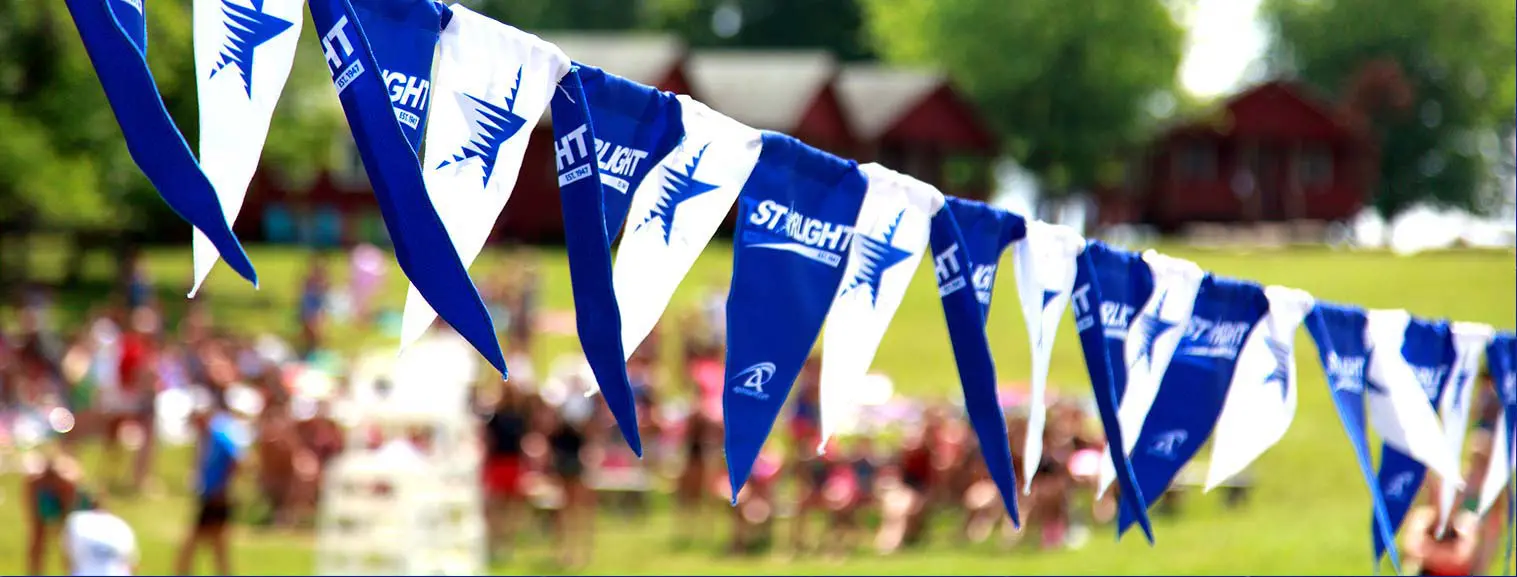
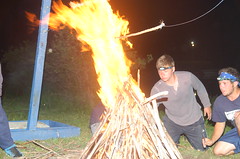 According to American Camp Association
According to American Camp Association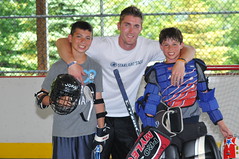
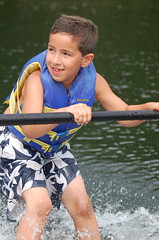 As children mature, they continue to develop and require more experiences where they can make independent choices without parents. If parents don’t allow children to make decisions and do things on their own, they won’t develop confidence or realize that they are not just extensions of their caregivers. It’s a tricky line that parents walk! Sometimes giving children room to spread their wings seems counter intuitive, but in order to grow into a self-reliant adult, children need to struggle without the offer of a quick fix. Even when parents can take care of things, the better choice is to support a child through the process of working through and solving problems. Long after a problem has been forgotten, a self-reliant child will remember hearing, “Wow! You amaze me! You really worked hard to figure that out.”
As children mature, they continue to develop and require more experiences where they can make independent choices without parents. If parents don’t allow children to make decisions and do things on their own, they won’t develop confidence or realize that they are not just extensions of their caregivers. It’s a tricky line that parents walk! Sometimes giving children room to spread their wings seems counter intuitive, but in order to grow into a self-reliant adult, children need to struggle without the offer of a quick fix. Even when parents can take care of things, the better choice is to support a child through the process of working through and solving problems. Long after a problem has been forgotten, a self-reliant child will remember hearing, “Wow! You amaze me! You really worked hard to figure that out.”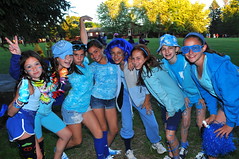 Of course, the
Of course, the 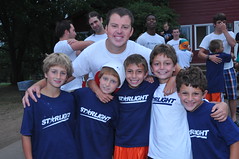 According to the
According to the 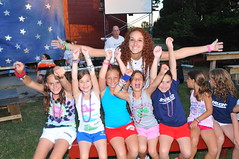 Bunkmates must also learn how to navigate the waters of communal decisionmaking. They must work through the inevitable issues and conflicts that come up in bunk living — and they must learn to adapt and get along when things don’t go their way. They learn to live by the will of the majority, while at the same time respecting the needs of others who represent the minority. Again, according to the ACA, “small group living also provides the necessary intimacy for individuals to achieve a sense of belonging, explore a variety of group roles, cooperate and form relationships with others, and have input into the group’s activities”.
Bunkmates must also learn how to navigate the waters of communal decisionmaking. They must work through the inevitable issues and conflicts that come up in bunk living — and they must learn to adapt and get along when things don’t go their way. They learn to live by the will of the majority, while at the same time respecting the needs of others who represent the minority. Again, according to the ACA, “small group living also provides the necessary intimacy for individuals to achieve a sense of belonging, explore a variety of group roles, cooperate and form relationships with others, and have input into the group’s activities”.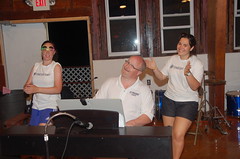 Although sometimes I am annoyed with how much of my life occurs online, there’s no arguing that modern social networking has helped nurture the lifelong friendships developed at camp. Now, instead of waiting days or week from a letter from a camp pen pal, you can send a text message, IM, or just nudge them on Facebook. Many camps have Facebook groups, some devoted exclusively to alumni from certain years, so the 50-somethings reminiscing about camp in the 70s can be a subgroup of a larger online camp community.
Although sometimes I am annoyed with how much of my life occurs online, there’s no arguing that modern social networking has helped nurture the lifelong friendships developed at camp. Now, instead of waiting days or week from a letter from a camp pen pal, you can send a text message, IM, or just nudge them on Facebook. Many camps have Facebook groups, some devoted exclusively to alumni from certain years, so the 50-somethings reminiscing about camp in the 70s can be a subgroup of a larger online camp community.
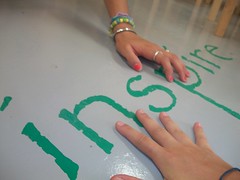 As parents, we are always on the lookout for experiences that help our children learn new skills. We enroll them in music lessons, martial arts, sports, theatre, choir and, of course, summer camps. But we all know that the best programs (and the best educational experiences) are ones that go beyond the basics of teaching skills to help develop our children’s character. The basics of
As parents, we are always on the lookout for experiences that help our children learn new skills. We enroll them in music lessons, martial arts, sports, theatre, choir and, of course, summer camps. But we all know that the best programs (and the best educational experiences) are ones that go beyond the basics of teaching skills to help develop our children’s character. The basics of 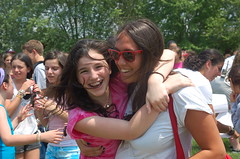
 “I felt like they were living a free life,” she says. The rules were there, just not stressful. This kind of independence creates the necessary space for the foundations of character to blossom. “I could not believe the person he had become – just a new person – totally confident in himself,” she says.
“I felt like they were living a free life,” she says. The rules were there, just not stressful. This kind of independence creates the necessary space for the foundations of character to blossom. “I could not believe the person he had become – just a new person – totally confident in himself,” she says.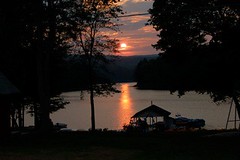 How would you describe the essential elements of a summer camp? Do the adventures of spending days with peers, learning new skills, trying new activities, bonfires and skits, great counselors— all the fun of the whole experience— first come to mind? These are definitely important elements of summer camp from a camper’s perspective, but there are a lot of other elements that have to be in place for a camp to be successful year after year. Have you ever wondered what it takes to set the scene and develop communities where good times can take place? I have.
How would you describe the essential elements of a summer camp? Do the adventures of spending days with peers, learning new skills, trying new activities, bonfires and skits, great counselors— all the fun of the whole experience— first come to mind? These are definitely important elements of summer camp from a camper’s perspective, but there are a lot of other elements that have to be in place for a camp to be successful year after year. Have you ever wondered what it takes to set the scene and develop communities where good times can take place? I have.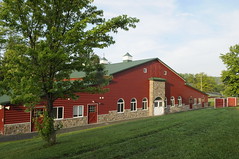
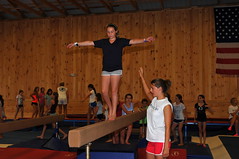 If you’ve been following this blog for a while, you know that we’ve focused a lot on how much fun kids have at camp — learning new sports; spending time with friends old and new; going on amazing trips; connecting with friends and counselors. But camp is also an educational experience for the children. We’re so used to education being “school” that it’s a real shift in perception to see lacrosse, tennis, living in a bunk, and other camp activities as education; but educational activities they are, as many parents can attest now their kids are back in school!
If you’ve been following this blog for a while, you know that we’ve focused a lot on how much fun kids have at camp — learning new sports; spending time with friends old and new; going on amazing trips; connecting with friends and counselors. But camp is also an educational experience for the children. We’re so used to education being “school” that it’s a real shift in perception to see lacrosse, tennis, living in a bunk, and other camp activities as education; but educational activities they are, as many parents can attest now their kids are back in school!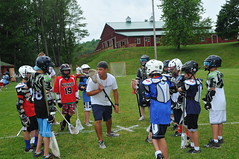 So what kind of difference can summer camp make to your child’s development? As the Executive Director of the
So what kind of difference can summer camp make to your child’s development? As the Executive Director of the 
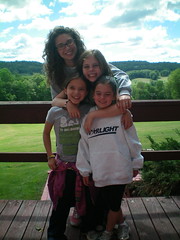 “I work really c
“I work really c
